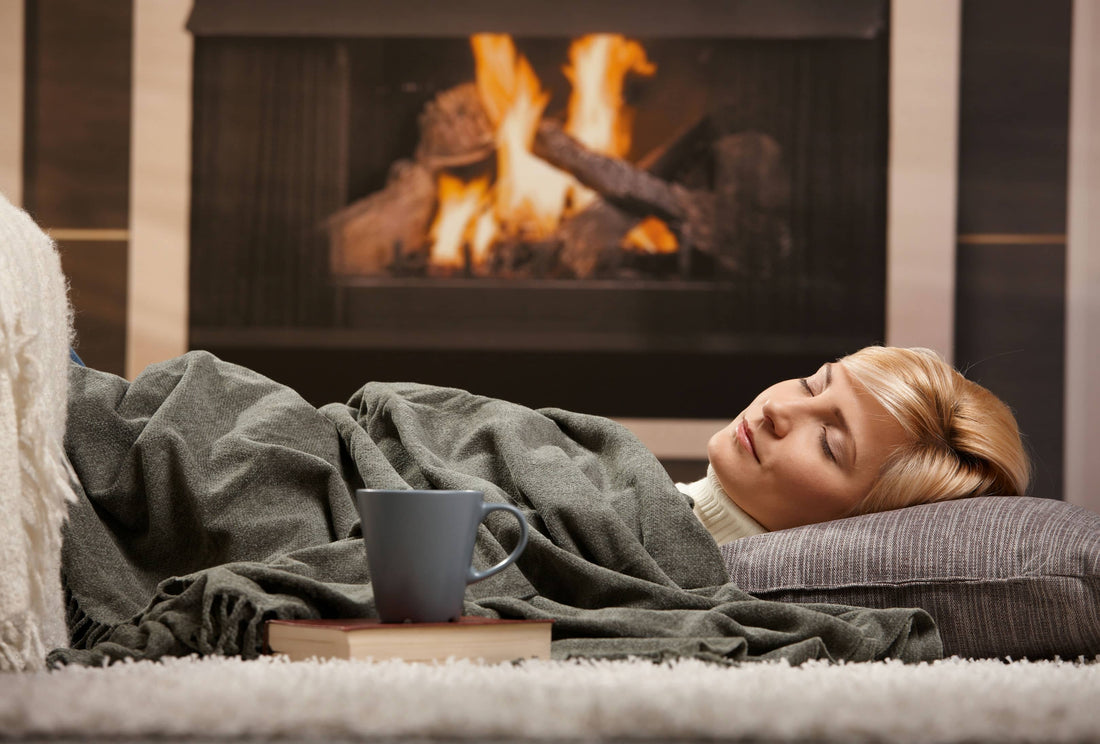For many of us, January can be a tough month when it comes to getting the high-quality sleep that we need and deserve. Celebrating the holidays with family and friends was a fun-filled but hectic time, and getting back to “real life” afterward can seem like a daunting task.
You might even find yourself feeling a bit depressed once your family has gone home, the tree has come down, and you’re facing the mountain of bills that came with celebrating the season. Not to mention the fact that it’s cold and dark outside, which can lead to trouble sleeping thanks to the loss of natural daylight and what that does to our bodies.
If you find yourself suffering from some seasonal depression and insomnia, you’re far from alone! January is notorious for bringing about acute insomnia and Seasonal Affective Disorder (SAD), both of which can lead to nights full of tossing and turning.
What is Acute Insomnia?
If you find yourself unable to fall asleep within 30 minutes of turning in for the night, you could be suffering from acute insomnia. And you’d also be one of the many people that find themselves dealing with this issue after the holidays.
Acute insomnia usually occurs during (or soon after) times of stress, when we typically have quite a bit on our plates (and minds), and is something that most people experience periodically throughout their lives.
For the most part, this type of insomnia will resolve itself (especially with some of the helpful hints that we’ll go over shortly), and isn’t usually a cause for concern. Just keep in mind that if your acute insomnia lasts for more than a month, your best bet is to check in with your doctor to see if you might need some medical assistance to get back to a good night’s sleep.
What is SAD?
Seasonal Affective Disorder (SAD) is a type of depression that comes and goes with the changing of the seasons, and it is usually seen during the fall and winter months, when the days get shorter, colder, and darker.
One of SAD’s most notorious symptoms is insomnia, which typically starts during the transition between fall and winter, and then slowly worsens with the approach of the holidays and the days afterward.
Doctors and scientists have found that the loss of natural light that comes with the darker days and longer nights of winter is what is to blame for Seasonal Affective Disorder, as it impacts our circadian rhythms (what regulates our sleep patterns), and lowers the level of serotonin (the “feel good” hormone). All of this results in less sleep and more worries.
What Are the Symptoms of SAD?
Some of the indicators that you might be struggling with SAD are:
- Agitation
- Appetite changes
- Irritability
- Lower Energy
- Problems Focusing
- Sleep Loss
- Weight Gain
If you find yourself struggling with any of these symptoms after the holidays, you should schedule a visit with your doctor to see if you might be suffering from SAD. Your health professional will be able to help you address your symptoms and get you back to feeling like yourself.
How to Get Better Sleep This Winter
Finding yourself feeling blue and sleep-deprived after the holidays is definitely no fun, but luckily there are some things that you can do to develop better sleep habits and get the rest that you need and deserve to get your new year off to an awesome start.
Schedule a Pre-Bed Wind Down: Give yourself 20 or 30 minutes to relax and get ready for sleep each night before you turn in. Reward yourself with some quiet and enjoyable activities, such as reading by the fire or even doing some coloring or drawing, and you will find yourself
falling asleep faster.
Journal for Quiet Nights: If you find that you’re having trouble sleeping due to stress, you definitely might want to consider starting a journal. Studies have shown that spending 15 or 20 minutes putting your worries down on paper before bed helps you to quiet your mind and get to sleep.
Give Yourself a Break: If you know that you’re going to have to stay up later than usual due to family or work obligations, give yourself permission to take a nap or sleep in later the next day if your schedule allows. This will help keep your rested and actually reduce your anxiety levels about not getting enough sleep.
